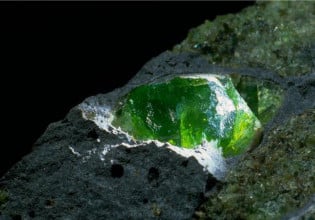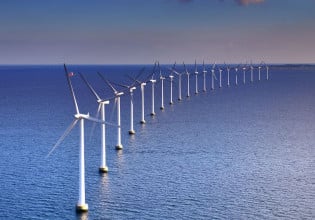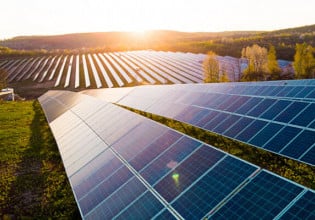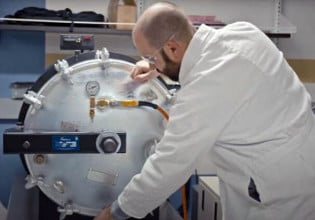New Technology and Partnership Creates Less Expensive, More Efficient Hydrogen Fuel Cells
Bing Energy, Inc. (BEI), a manufacturer of components for polymer electrolyte membrane fuel cells (PEMFCs), has entered into a commercialization agreement with Florida State University that gives the company exclusive use of revolutionary nanotechnology that will create a new generation of hydrogen fuel cells that are less expensive, smaller, lighter and more durable.
The technology, developed by Dr. Jim P. Zheng, a professor of electrical and computer engineering at the Florida A&M University-Florida State University College of Engineering, will reduce the need for expensive platinum components in hydrogen fuel cells. Working with a material known as buckypaper – a form of carbon that is extraordinarily light and that easily conducts heat or electricity – Dr. Zheng has designed a thin material, or membrane, that will reduce the amount of platinum required in fuel cells. Since the membrane is thinner and lighter than current components, the fuel cell can be smaller and yet still provide the same amount of power.
Dr. Zheng’s technology is based on Dr. Ben Wang’s pioneering research and development of buckypaper. Dr. Wang is the assistant vice president for research at Florida State University.
"What Dr. Zheng has developed is truly the ’better, faster, less expensive’ story applied to fuel cells," said Richard Hennek, Vice President for Business Development at Bing Energy, Inc. "He has cleverly utilized the latest in nanotechnology to provide a dramatically better solution for the PEM fuel cell. Performance improvements of 40-plus%, durability improvements of 25% and all at a lower cost make for a compelling story. We at Bing Energy are truly excited to work with Dr. Zheng and Florida State University to bring this technology to the marketplace."
Until now, fuel cells have been too expensive for mass production and use. Dr. Zheng’s breakthrough makes the fuel cell viable for mass-market use for the first time, with the potential to transform both transportation and distributed power generation.
Bing Energy will begin production in March of 2011 and serve the domestic and international energy markets.






